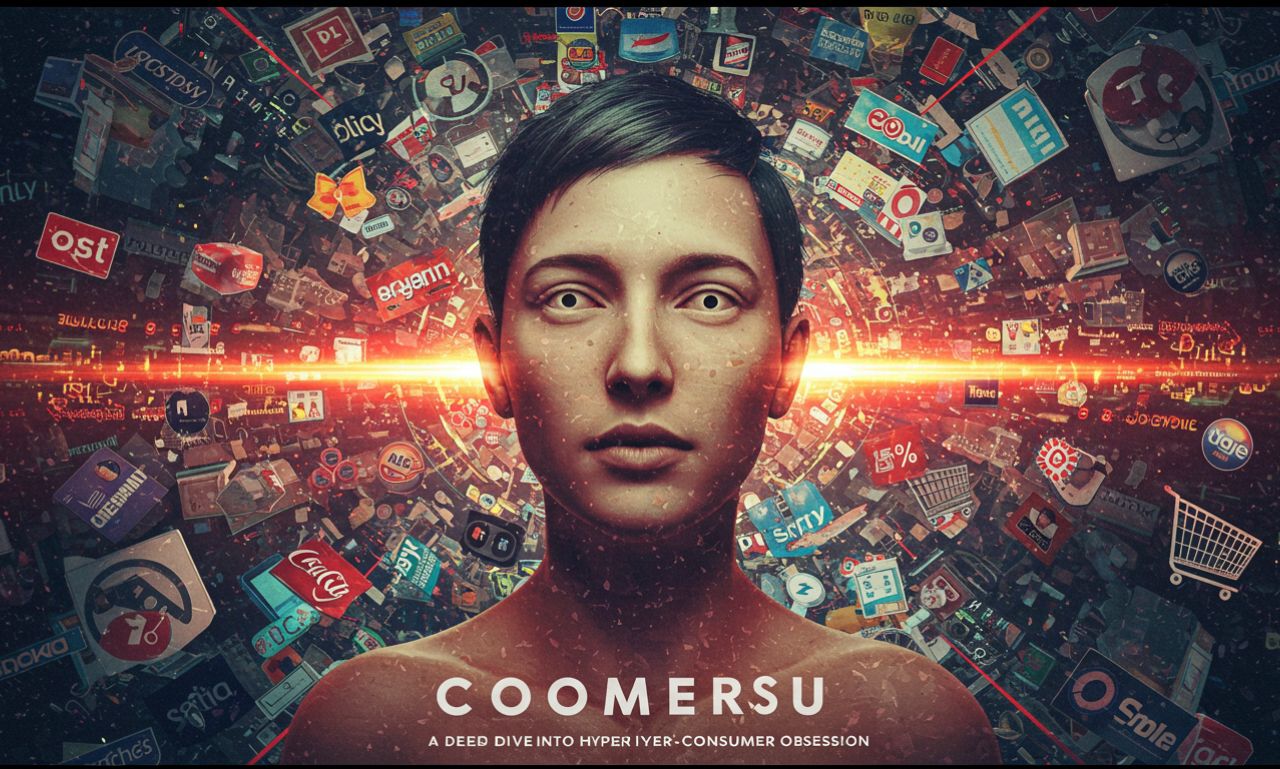The digital age has given rise to new slang and subcultural terms that reflect changes in how we consume media and relate to products. One such term, coomersu, is increasingly being used in online spaces to describe a specific type of hyper-consumer—a person so deeply obsessed with fictional characters or media franchises that their consumer behavior becomes compulsive and identity-defining.
Coomersu combines elements of “coomer” (a term often used in meme culture to refer to excessive online indulgence, and “consumer.” The result is a word that critiques the modern phenomenon of people defining themselves by the media and merchandise they consume.
This article explores what coomersu means, where the term comes from, why it’s gaining traction, and what it says about our digital lifestyles and identities.
Origins of the Coomersu Term
A Product of Meme Culture
The term coomersu originated from imageboards and niche internet forums where users discuss pop culture, gaming, and anime. It emerged as a satirical way to criticize fans who excessively buy merchandise, posters, figurines, and other paraphernalia tied to their favorite franchises—often anime or video games.
Symbol of Hyper-Consumerism
Beyond memes, coomersu has evolved into a critique of modern capitalism and how companies monetize identity and fandom. It reflects how emotional attachment to fictional characters can be commercialized, turning passion into a constant loop of buying and collecting.
Characteristics of a Coomersu
Obsessive Collection
A key trait of a coomersu is obsessive consumer behavior. This includes:
-
Buying multiple versions of the same item (limited editions, alternate colors, etc.)
-
Spending excessive amounts on merchandise tied to a character or franchise
-
Feeling a sense of emptiness or FOMO when not actively purchasing new items
Fictional Character Attachment
Coomersus often develop intense emotional or parasocial relationships with fictional characters. These attachments sometimes become central to their identity and lifestyle, even affecting their real-world relationships and priorities.
Living Through Consumption
For many coomersu types, consumption isn’t just a hobby—it’s a coping mechanism or identity substitute. Instead of pursuing meaningful activities, their life satisfaction is derived from owning objects connected to fantasy worlds.
The Psychology Behind Coomersu Behavior
Escapism in the Digital Age
One of the reasons coomersu behavior is so prevalent is due to modern escapism. People overwhelmed by the real world may retreat into digital universes where things are predictable, comforting, and controlled. The act of buying merchandise becomes symbolic—it creates a tangible link to that fantasy.
Dopamine and Instant Gratification
Like any compulsive behavior, coomersu tendencies can be driven by dopamine release. Buying something new, especially something visually stimulating or exclusive, can provide a temporary high, making the user feel rewarded and validated.
Online Culture and Echo Chambers
Algorithms and targeted advertising reinforce coomersu behavior. Once someone shows interest in a specific fandom, they’re bombarded with more content, products, and communities that normalize and even glamorize overindulgent consumption.
Coomersu vs. Fandom: What’s the Difference?
Healthy Fandom
Loving a show, book, or game and collecting some memorabilia is normal. Fans often form communities, share ideas, and enjoy media in ways that enrich their lives.
When It Becomes Coomersu
Coomersu behavior begins when the consumption overshadows the content itself. The focus is no longer on enjoying the story or artistry but on hoarding collectibles, fixating on fictional characters, and feeling a compulsive need to consume for emotional relief or identity.
Cultural Impact of the Coomersu Archetype
How Brands Exploit Coomersu Culture
Franchises now design entire marketing strategies around coomersu psychology. Limited drops, exclusive figurines, character merchandise, and gacha games (which exploit gambling mechanics) are all created to trigger compulsive spending.
Impact on the Community
The rise of the coomersu has split online communities. While some embrace the lifestyle, others critique it, arguing that it dilutes real passion into mindless purchasing. Some forums ban overt consumerism discussions to keep focus on content appreciation.
Coomersu in Media
The coomersu archetype has even made its way into web comics, satirical art, and short films—often portrayed as a cautionary tale of modern alienation and identity loss in the age of digital capitalism.
Combating the Coomersu Mentality
Building Self-Awareness
Recognizing coo.mersu behavior in yourself is the first step toward change. Ask: Why am I buying this? What does it add to my life?
Setting Boundaries
Implementing spending limits, unfollowing merch-heavy pages, and limiting screen time can reduce exposure to consumer triggers.
Focusing on Creation, Not Just Consumption
Many former coo.mersus have redirected their energy into creative pursuits like art, writing, or game development. These activities provide deeper satisfaction and a sense of agency over your identity.
Is Coomersu Always a Negative Label?
A Matter of Degree
Not all forms of intense fandom qualify as coomersu behavior. Some people genuinely enjoy collecting as a hobby and manage it in a balanced, responsible way. For others, it’s a red flag signaling emotional issues or an unhealthy reliance on consumption to fill deeper voids.
Reclaiming the Term
Some communities are attempting to reclaim or satirize the term coo.mersu, turning it into a playful self-label rather than a critique. It’s a way to laugh at themselves while staying self-aware of their habits.
Final Thoughts: Why Coomersu Reflects Our Times
The rise of the coomersu archetype isn’t just an internet joke—it’s a mirror to society’s deeper issues. In a world that constantly pushes consumerism, social validation, and virtual identity, coo.mersu is what happens when those pressures go unchecked.
But with awareness, self-control, and creative redirection, people can move beyond compulsive consumption and reclaim agency over their lives and passions.
So next time you’re tempted to buy that sixth limited-edition keychain of your favorite anime girl… pause, breathe, and ask: Am I being a coo.mersu right now?
